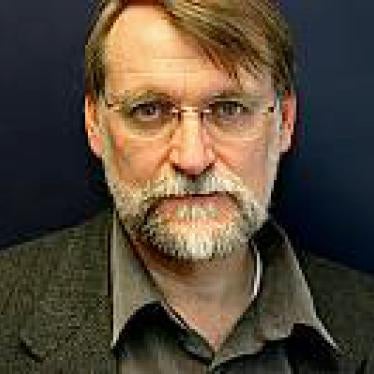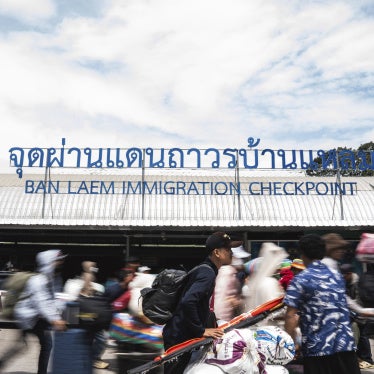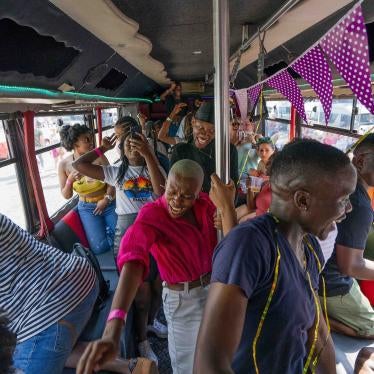Last year, the Bulgarian government felt the sting of criticism from Brussels, Geneva and other quarters for mishandling an influx of mostly Syrian refugees. Many were confined in cold, filthy camps without government-provided food, medical care or minimally adequate shelter. The problem got so bad that the United Nations refugee agency UNHCR called on European Union member states not to send asylum seekers back to Bulgaria, as they are generally allowed to do under the Dublin Regulation. It says that the EU country an asylum seeker first enters is usually responsible for examining the person’s claim.
On April 15, UNHCR gave Bulgaria an almost clean bill of health. It told member states that while there still might be certain groups or individuals, another EU country would be precluded from returning to Bulgaria and that participating Dublin states should conduct individual assessments before returning anyone – “deficiencies are no longer such as to justify a general suspension of Dublin transfers to Bulgaria”.
Camp conditions in Bulgaria did, in fact, improve and the registration and processing of asylum claims became speedier and more efficient. But that is not the whole story. Not even close.
On November 6, the Bulgarian government established a new “containment” policy for preventing irregular entry at the Turkish border and “reducing the number of persons seeking protection in the territory of Bulgaria”. It succeeded almost immediately. In December, Bulgaria was host to more than 9,000 asylum seekers; the number now is about 6,700, a 27 per cent decrease at a time when Syrian refugee numbers in Turkey and the Middle East rapidly grew to more than 2.5 million.
The Bulgarian Interior Ministry said that its large-scale police operation set out “to provide 100 per cent protection of the most sensitive sections of the border”. The ministry reported: “As of 31 January 2014 the influx of illegal immigrants was practically ceased.” How does a country just stop a refugee flow? In Bulgaria’s case, by forcing people back . In some instances, brutally.
Abdullah, an Afghan asylum seeker, told Human Rights Watch that the Bulgarian border police began beating him immediately after they caught him and a few others, and showed us his scars when we interviewed him in Turkey in January. “After beating me, the police brought me over to their superior who pointed to his boot as if because of me his boot was dirty,” he said. “So he ordered the soldier to beat me. First he beat me with his fist in my stomach and then with the butt of his gun on my back so I fell down, then he kicked my ribcage while I was lying down. One of my bones in my lower back is broken.
“They kept beating my head and my back. First one soldier and then another. I tried to escape but they caught me and beat me even more. They even beat me as they were dragging me to the car. They put three of us on the back seat of the jeep. I wasn’t even thinking about pain, all I was worried about was my wife and child.” They had become separated from him as the police approached.
Abdullah said that the police drove for about 30 to 45 minutes, stopped, and then started walking: “While we were walking he kept hitting me with his stick. The walk was about 200 meters and I was beaten all the way. When we reached the border, the soldier showed the direction to Turkey.”
I was part of a Human Rights Watch team that interviewed Abdullah and other asylum seekers and migrants in Bulgaria and Turkey about their experiences at the Turkey-Bulgaria border. We heard detailed accounts of 44 pushback incidents that involved at least 519 people. Our research found Bulgarian border police caught people on Bulgarian soil and summarily returned them to Turkey without proper procedures and with no opportunity to lodge asylum claims, often using excessive force.
In October, before the new policy was announced, more than 3,600 people crossed into Bulgaria irregularly but after the containment plan was fully implemented – in the first five weeks of 2014 – only 99 people succeeded in making that crossing. By contrast during those same five weeks, more than 20,000 Syrian refugees entered Turkey, the country to which Bulgaria was pushing back asylum seekers. The European Commission has rightly launched infringement proceedings against Bulgaria, calling on it to answer allegations that it broke EU rules by summarily returning Syrian refugees.
So Bulgaria no longer has dirty, chaotic, overcrowded camps and UNHCR with some caveats says that it is looking again like an acceptable member of the European club. But that comes at the cost of preventing asylum seekers from lodging refugee claims on its territory, violating its human rights and refugee law obligations. In the meantime, Turkey, which already hosts well over half a million Syrians, should not be expected to serve as Bulgaria’s refugee dumping ground. Hardly a situation that merits a resumption of Dublin returns to Bulgaria.








